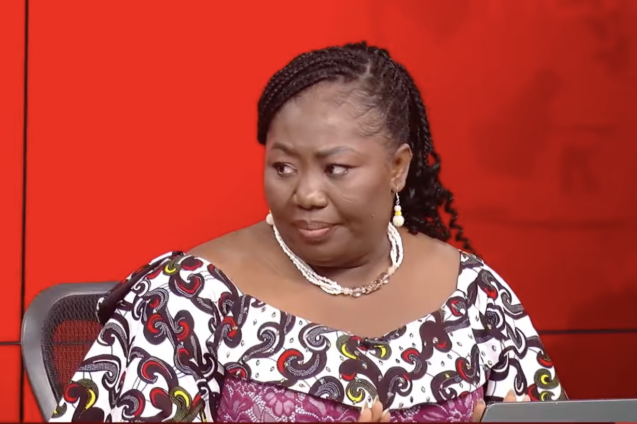A private legal practitioner and law lecturer, Clara Beeri Kasser-Tee, has raised critical questions about the Electoral Commission’s (EC) authority to declare electoral processes “illegal.”
Speaking on Joy News’ Newsfile on Monday, December 28, she argued that the EC’s assertion of illegality in disputed election results could exceed its mandate and require judicial determination.
Her comments come after the Supreme Court quashed results in the re-collation of votes in Tema Central, Ablekuma North, Techiman South, and Okaikwei Central in the 2024 parliamentary elections.
The apex court added that the order does not affect Ahafo Ano North and Nsawam Adoagyiri results.
According to the court, the trial judge violated the right to a hearing of the NDC Parliamentary Candidates when they applied to the High Court.
“Is it within the capacity of the EC to declare that there is an illegality? That, for me, is a question the courts must answer,” Kasser-Tee stated.
She explained that while administrative bodies like the EC can recognize errors, declaring something illegal is a legal judgment that must be supported by due process.
The law lecturer distinguished between errors and illegalities, stating that errors are factual acknowledgements, whereas illegalities require a legal basis.
“When you say you have made an error, you admit it as a matter of fact. But if you are saying something is illegal, it’s a question of law,” she explained.
Mrs Kasser-Tee further argued that procedural compliance is key in determining whether the EC acted within its mandate.
“If the procedure was followed, due process was adhered to, sometimes disputes might not even arise,” she noted, adding that transparency in decision-making fosters trust in institutions.
The law lecturer also stressed that allegations of illegality must be established through fair and impartial processes.
“Yes, it’s true that fraud vitiates everything, but allegations of fraud do not vitiate anything—they must be proven,” she said.
She questioned whether the EC had followed the required steps after receiving allegations of irregularities.
“The EC has a duty to act fairly and reasonably. What I didn’t see is how these allegations were addressed. Did the EC give all parties an opportunity to be heard?” she asked.
Mrs Kasser-Tee concluded by stressing the importance of fairness and consistency in the EC’s actions.
“When decisions are made fairly, people may not always agree, but they will respect them. The EC must ensure its processes are beyond reproach,” she said.
Latest Stories
-
Meet Christiana Aseda De-Graft Johnson: Ghana’s young musical prodigy with a family legacy of sound
49 seconds -
Ghana makes theatre history with world’s first mobile bus stage performance
6 minutes -
Over 2,000 rounds of ammunition and 20 guns seized at Kotoka International Airport
12 minutes -
Abuakwa South MP leads civic education drive with student tour of Parliament
15 minutes -
Police officer among four dead in shooting at New York City office building
20 minutes -
Russia strikes prison in Ukraine, killing 17 and wounding dozens
20 minutes -
Beijing floods kill 30 as China sees summer of extreme weather
20 minutes -
Bawku Conflict: Affected final-year students to receive WASSCE support – GES
22 minutes -
Ghana saves $1.4bn since commercial export of crude oil
27 minutes -
Kintampo gridlock: 2-day highway shutdown leaves hundreds stranded
30 minutes -
UniBank case: I’ll be disappointed in Attorney General if… – Tuah Yeboah
45 minutes -
Nigeria: Tinubu gifts each Falcons player $100,000, national honours, house
46 minutes -
Ga East MCE engages Ghana Water Company on support plans
51 minutes -
Bibiani market women cry for stability after constant displacements
52 minutes -
MCE for Ga East Engages Circuit Court for development partnerships
54 minutes

